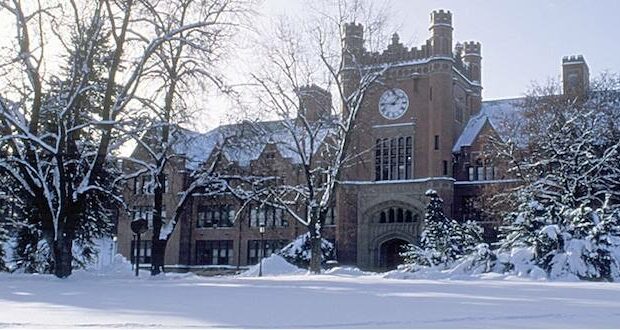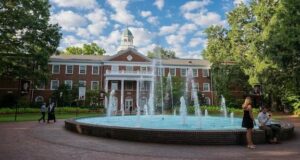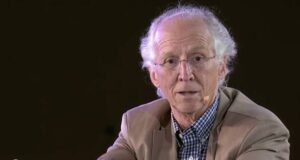Christian students and a faculty member have settled a lawsuit against the University of Idaho that limited their freedom of religious speech.
The lawsuit, filed by the Alliance Defending Freedom (ADF) attorneys in April, blamed university officials for targeting the students’ First Amendment rights by punishing them for their religious speech. The university had issued no-contact orders on students—Peter Perlot, Mark Miller, and Ryan Alexander, who are members of the university’s Christian Legal Society (CLS) chapter—as well as CLS faculty advisor Professor Richard Seamon.
In the settlement, the university rescinded the no-contact orders and agreed to pay $90,000. Following the settlement, CLS attorney Laura Nammo criticized university officials for censoring differing viewpoints as it “needlessly exacerbates polarization and harms all students’ ability to learn from one another,” according to ADF Media.
“Today’s university students will be tomorrow’s leaders, judges, and school administrators, so it’s imperative that university officials model the First Amendment freedoms they are supposed to be teaching their students,” said ADF Senior Counsel Tyson Langhofer, director of the ADF Center for Academic Freedom.
The conflict which triggered the lawsuit occurred during spring. The University’s College of Law held a public event on the campus in Moscow, Idaho, to condemn an anti-LGBTQ slur that was allegedly found on a whiteboard at the Boise campus.
The event was attended by members of the CLS who also prayed publicly. The members follow a code that classified non-heterosexual marriage as immoral. One university student, referred to as Ms. Doe in court documents, questioned the presence of CLS at the event, pointing to the group’s stance on LGBTQ.
Authorities could not determine if the whiteboard language was an actual act of hate or a hoax like numerous others across the country, including the Jussie Smollett case.
Conflict, No-Contact Order
The attorneys representing CLS students claim that they had responded respectfully, presenting their beliefs as per their Biblical interpretation.
But lawyers representing the university claimed that Biblical language was hateful, including references to “hell.”
Ms. Doe, who made the complaints, is then said to have received a note from a CLS member on her desk, asking for a discussion on the matter so that both sides can understand each other’s views.
She later complained to officials that the contact made her feel harassed and uncomfortable, asking that no-contact orders against everyone, including herself, be issued so that she can feel safe.
No Opportunity to Defend
At a panel with the American Bar Association, several people publicly denounced CLS’ religious beliefs. One of the CLS students who attended the meeting claimed that it was his organization and its beliefs that faced the greatest amount of discrimination.
When no-contact orders were issued against CLS students, they were given no opportunity to defend themselves or review the allegations leveled against them.
CLS members eventually sued the University. In July, a federal judge asked the university to rescind the orders, pointing out that Ms. Doe has not alleged any sexual harassment.
The judge also noted that CLS students would likely succeed in arguing that the university was suppressing their First Amendment rights.
–Metro Voice and wire services
 Metro Voice News Celebrating Faith, Family & Community
Metro Voice News Celebrating Faith, Family & Community 







